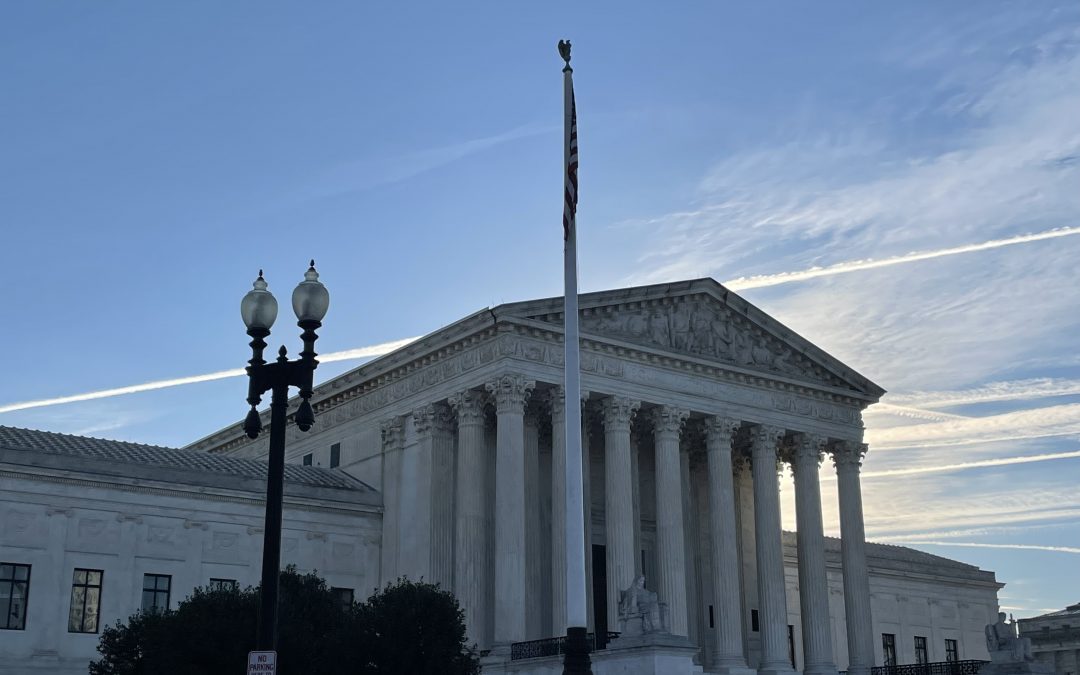WASHINGTON — Miguel Perez, a 23-year-old deaf student from Michigan, petitioned the Supreme Court today to decide if he was entitled to financial compensation for Perez’s lack of proper accessibility support in his public school.
The case brings to light how students with disabilities could be harmed by possibly negligent school systems for the lack of disability support. And the ruling could influence the way education navigates civil pursuits in the future.
“In the real world, the way these cases tend to be litigated, parents do not typically have a lot of resources. Their lawyers are busy. They are busy,” said Perez’s attorney, Roman Martinez. “Miguel’s parents and Miguel, they did everything right.”
Perez attended Sturgis Public Schools from age 9 to 20. He was assigned a classroom aide, who was not trained properly and did not know sign language, according to filings. Despite this, Perez made the Honor Roll each semester.
However, just months before graduation, the school informed Perez’s family that he did not qualify for a diploma and that he was only eligible for a “certification of completion.”
Perez and his family filed a complaint with the Michigan Department of Education in 2017, alleging that he was denied an adequate education, and that Sturgis Public Schools violated federal and state disability laws.
The judge dismissed some claims, but held a hearing on whether Perez was denied assistance under the Individuals with Disabilities Education Act.
Martinez said that what happened goes against what Congress intended with the act.
“For 12 years, Sturgis neglected Miguel, denied him an education and lied to his parents about the progress he was allegedly making in school,” said Martinez, a partner at Latham and Watkins. “Congress didn’t punish kids for saying yes to favorable IDEA settlements.”
The Individuals with Disabilities Education Act offers federal funds to states in exchange for their commitments to accommodate children with disabilities to a Free Appropriate Public Education.
For example, deaf students should be provided with a trained sign language interpreter. A student with reading challenges may be provided a multi-sensory room, and a child who cannot take notes would be assisted by a scribe.
The act also establishes procedures for resolving disputes between parents and schools concerning the education of their students with disabilities.
Sturgis offered to settle the Individuals with Disabilities Education Act complaint, to which the Perez family agreed. The school district agreed to place Perez in the Michigan School for the Deaf and pay for his postsecondary compensatory education and sign-language services.
Perez then sued the district in federal court under the Americans with Disabilities Act for unspecified money damages. The school district argued that Perez could not bring the suit forward because he had already exhausted all administrative proceedings under the Individuals with Disabilities Education Act.
Sturgis Public Schools’ lawyer Shay Dvoretzky argued that since Perez accepted the settlement that Sturgis offered, as an Individuals with Disabilities Education Act plaintiff, he could not sue. He also said that school districts had “an interest in starting to provide the Free Appropriate Public Education as soon as they were aware.”
Justices Amy Coney Barrett and Ketanji Brown Jackson pointed out the flaws in Dvoretzky’s narrative. Brown Jackson raised a scenario about a hypothetical 18-year-old who was denied proper assistance but did not want to continue her education.
Along with Dvoretzky’s argument, this student would not be able to sue on an ADA claim to support herself, but also would, no matter what, need to go through an Individuals with Disabilities Education Act hearing.
“You are envisioning a world, it seems maybe a very narrow world, in which an ADA claim could be pursued after your vision of exhaustion occurs,” Coney Barrett said.
Justice Elena Kagan continued, explaining that rather than the school district, “it’s the parents that have the greater incentive to get the education fixed for their child.”
In previous rulings, a federal district court, as well as a panel from the U.S. Court of Appeals for the 6th Circuit, agreed with the school district. U.S. Solicitor General Elizabeth B. Prelogar, however, told the Supreme Court that several other federal appeals courts ruled in the opposite manner in similar cases.
The Supreme Court will deliberate if the Individuals with Disabilities Education Act proceedings were fully pursued when Perez sought monetary damages, which an officer does not have the power to award.
A decision by the court is expected by June.


